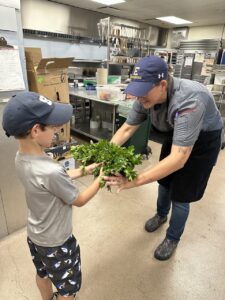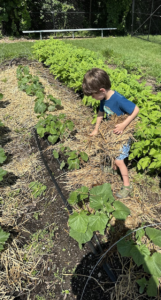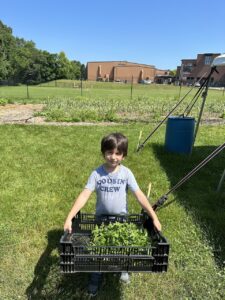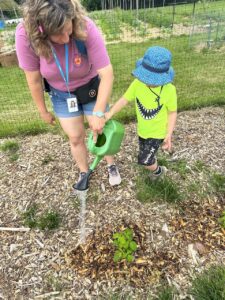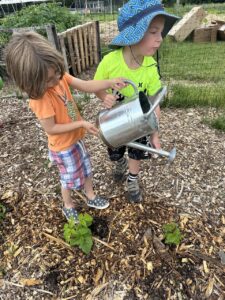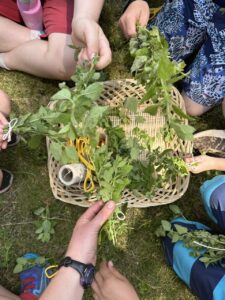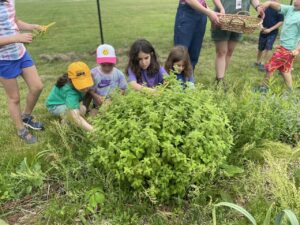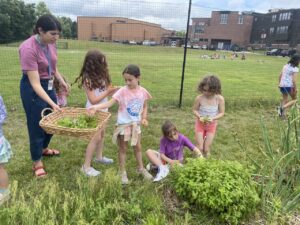Tisha B’av at the Gann Farm: The Lesson of the Walking Onion

The farm at the Gann Academy is a wonder; we are blessed to make it a central part of our summer camp program.
If you time your visit to the Gann Farm just right, you might receive the gift of a detailed and passionate tour by Noah Weinberg, Gann Academy’s Jewish Life & Farm Education Coordinator. Last week, I managed to hit the jackpot alongside a group of visitors as we toured the Calendar Garden and the Rainbow Garden, as well as the rest of the farm. We saw tomatoes, chickens, a vegetable called “kishu’im” – which are not modern-day zucchini, but rather a vegetable described in the Bible – plus cucumelons, hanging garlic, and an outdoor oven that is in the process of being built.
In the Calendar Garden, Noah walked us through the circular design demarcated by plaques with the names of the Hebrew months. Each month has a plant associated with it in the garden; for example, Tishri boasts a grape vine for making kiddush at Rosh Hashanah, while Kislev (the month of Chanukkah) has potatoes for latkes, and Shvat has a fig tree for Tu BiShvat. This month, Av, has Egyptian Walking Onions.
Why walking onions? Noah explained that it seemed reminiscent of the themes of Tisha B’Av. A walking onion plant starts as a small onion bulb, planted in one spot. It grows straight up and reproduces, growing more onion bulbs on top, until it is too heavy to stand up straight. At that point, it bends under its own weight, curving downward and away to replant itself in another spot – hence the “walking.” Once in that new spot, it rises again until it topples over and plants itself in another new, safe spot where it can once again grow.
This is the history of the Jewish people: we plant ourselves in a place that feels safe and secure. We grow, and then, all too often, something happens that causes us to need to replant ourselves elsewhere. We rise and grow again, in our new place, until we move – sometimes for opportunity, sometimes by force. Tisha B’Av is the holiday that reminds us of all the times that we’ve been forced to adapt to unwanted changes – but it is also the story of hope, of finding new opportunities in our lowest times and continuing to grow no matter what happens to us.
It is an old Yiddish curse to say, “may you grow like an onion, with your head in the ground and your feet sticking up in the air.” On Tisha B’av, we recognize that there are some onions who are more resilient than others.
